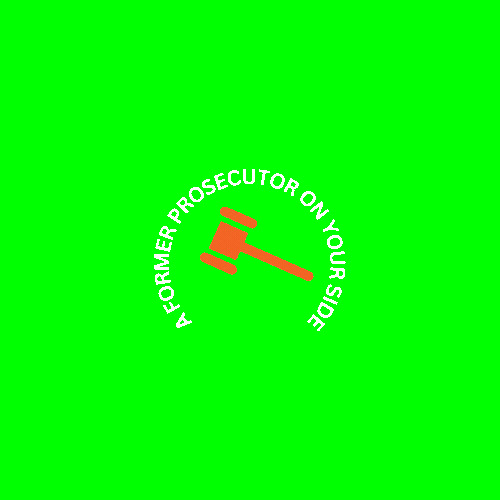Best Arrests & Searches Lawyers in Maryland
Share your needs with us, get contacted by law firms.
Free. Takes 2 min.
Or refine your search by selecting a city:
List of the best lawyers in Maryland, United States
About Arrests & Searches Law in Maryland, United States
Arrests and searches are critical aspects of criminal law in Maryland. When law enforcement officers suspect involvement in criminal activity, they may stop, search, or arrest individuals under specific legal standards. Maryland law, along with the United States Constitution, outlines clear procedures to protect individual rights while allowing police to investigate crime. This means that not every encounter with police results in a lawful arrest or search; instead, authorities must follow established legal processes to ensure actions are justified and evidence is admissible in court.
Why You May Need a Lawyer
Facing an arrest or search can be a stressful experience. You might need a lawyer in several situations, including:
- If you believe your rights were violated during a police stop, search, or arrest.
- If you are charged with a crime based on evidence obtained during a police search.
- If law enforcement requests to search your person or property and you are unsure of your rights.
- If you are being questioned as part of a criminal investigation and want to avoid self-incrimination.
- If you wish to challenge the legality of an arrest or the admissibility of evidence in court.
- If you face criminal penalties following an arrest, including potential jail time or fines.
A skilled attorney can help you navigate the complexities of Maryland's arrest and search laws, protect your rights, and develop the best legal strategy for your situation.
Local Laws Overview
Maryland has specific laws and constitutional protections regarding arrests and searches. The Fourth Amendment of the U.S. Constitution protects against unreasonable searches and seizures, and these protections are mirrored under Maryland law. Key aspects include:
- Police generally need "probable cause" to arrest someone or conduct a search without consent.
- Most searches require a warrant authorized by a court, unless an exception applies, such as consent, search incident to a lawful arrest, or exigent circumstances.
- During a "stop and frisk," Maryland police must have "reasonable suspicion" based on specific facts that criminal activity is afoot.
- Maryland law restricts the use of force during arrests and requires officers to identify themselves, if practical, when executing a warrant.
- Evidence obtained in violation of your rights may be excluded from use in court ("suppression of evidence").
- Certain searches of vehicles have additional standards and restrictions under Maryland and federal law.
Knowing your rights is critical if you are involved in any law enforcement encounter in Maryland.
Frequently Asked Questions
What should I do if I am stopped by the police in Maryland?
You should remain calm and respectful. Provide your name and identification if asked. You do not have to answer all questions, and you may state that you wish to remain silent or speak with a lawyer before answering further questions.
Can the police search me or my property without a warrant?
Generally, police need a warrant to search you or your property, but there are several exceptions. For example, searches may be legal if you consent, if the evidence is in plain view, during an arrest (search incident to arrest), or under exigent circumstances.
What is "probable cause" in Maryland?
Probable cause means there are reasonable grounds to believe that a crime has been committed and that you are involved in it. Police need probable cause to arrest or to obtain a search warrant.
Do I have to consent to a search?
No, you are not required to consent to a search. You may politely state that you do not consent. However, refusing consent does not guarantee that an officer will not conduct a search, but your objection can affect what evidence is allowable in court.
What happens if the police violate my rights during a search or arrest?
If your rights are violated, evidence found during an illegal search may be excluded from court proceedings. Additionally, you may have grounds for legal action against the police.
What can I do if I’m arrested?
You have the right to remain silent and the right to an attorney. Do not resist arrest. Ask to speak to a lawyer as soon as possible and avoid making statements until you have legal counsel.
Are police allowed to search my car in Maryland?
Police can search your vehicle without a warrant if they have probable cause to believe it contains evidence of a crime. Certain other circumstances, like consent or items in plain view, may also allow a search.
What is a search warrant, and how is it obtained?
A search warrant is a document issued by a judge authorizing police to search a specific place for specific items. Officers must present probable cause to obtain a warrant.
Can police stop and frisk me?
Police in Maryland can briefly stop and frisk you if they have reasonable suspicion that you are involved in criminal activity and may be armed and dangerous. The search is limited to a pat down for weapons.
Do juvenile arrest laws differ in Maryland?
Yes, there are special procedures for juvenile arrests in Maryland, including notifications to parents or guardians and access to legal representation. Juvenile cases are generally treated with additional privacy and procedural safeguards.
Additional Resources
If you have questions or need assistance, the following resources may be helpful:
- Maryland Courts - For court locations, self-help centers, and legal forms
- Maryland Office of the Public Defender - Provides free legal representation to eligible individuals who cannot afford an attorney
- Maryland State Bar Association - Offers lawyer referral services and legal information
- ACLU of Maryland - Information on civil rights related to police encounters and searches
- Maryland Legal Aid - Free civil legal assistance for qualifying individuals
- Local police department or sheriff's office - For information about department procedures and records
Next Steps
If you or someone you know is involved in an arrest or search situation in Maryland, consider the following steps:
- Exercise your right to remain silent and request an attorney before answering police questions.
- Do not resist arrest, but make a mental or written note of what happened during your interaction with law enforcement.
- Contact a criminal defense attorney as soon as possible. Look for lawyers experienced in Maryland arrest and search law.
- If you cannot afford a lawyer, ask for a public defender at your first court appearance.
- Gather any documents or evidence related to your case, such as police reports, warrants, or witness information.
- Stay informed about your rights and responsibilities throughout the legal process. Use trusted resources or speak directly to a legal professional about your options.
Taking prompt legal action can help protect your rights and ensure the best possible outcome for your case.
Lawzana helps you find the best lawyers and law firms in Maryland through a curated and pre-screened list of qualified legal professionals. Our platform offers rankings and detailed profiles of attorneys and law firms, allowing you to compare based on practice areas, including Arrests & Searches, experience, and client feedback.
Each profile includes a description of the firm's areas of practice, client reviews, team members and partners, year of establishment, spoken languages, office locations, contact information, social media presence, and any published articles or resources. Most firms on our platform speak English and are experienced in both local and international legal matters.
Get a quote from top-rated law firms in Maryland, United States — quickly, securely, and without unnecessary hassle.
Disclaimer:
The information provided on this page is for general informational purposes only and does not constitute legal advice. While we strive to ensure the accuracy and relevance of the content, legal information may change over time, and interpretations of the law can vary. You should always consult with a qualified legal professional for advice specific to your situation.
We disclaim all liability for actions taken or not taken based on the content of this page. If you believe any information is incorrect or outdated, please contact us, and we will review and update it where appropriate.
Browse arrests & searches law firms by city in Maryland
Refine your search by selecting a city.















